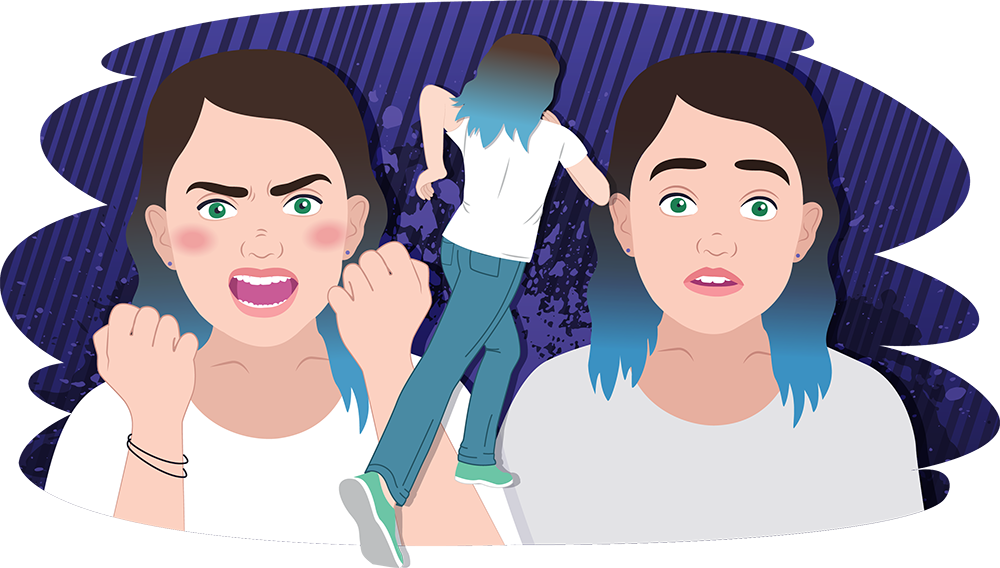Your brain when you're anxious
The brain is very complex! But let’s simplify things a bit, ...
READ METo work out why you're feeling anxious, it can be really helpful to understand what anxiety actually is, and how it evolved in the human brain.

For example it might seem very silly to ‘freeze’ when there is a bear about, but it’s useful when faced with a predator who struggles to see prey that isn’t moving!
We live in a world that is full of stress. So even though you’re not being chased by a bear, stuff like homework or fighting with friends can trigger your fight/flight/freeze response.
In modern-day life with modern-day stress and anxiety, your response might might look like:
Panic (flight response)
Being irritable (fight response)
Not reacting at all (freeze response)
Getting into an argument (fight response)
Isolation or withdrawal (flight or freeze response)
Procrastination or avoidance (flight or freeze response)
Your body might have some of these symptoms if you are anxious or stressed:
Feeling shaky
Feeling very tired
Lowered immunity
Reproductive issues
Trouble concentrating
Feeling short of breath
Hormone-related issues
Difficulties sleeping/insomnia
Rapid heartbeat or heart palpitations
Sick in the stomach or digestive issues
“No matter whether your response to a threat was fight, flight or freeze, once you feel safe, your brain and body start to calm down."
– Amanda, Kids Helpline Counsellor
If you want to learn more about anxiety and how to deal with it, give us a call, start a WebChat or send us an email today.
If you need more information for other digital services and resources, check out Head to Health.
Your brain when you're anxious
The brain is very complex! But let’s simplify things a bit, ...
READ MECoping strategies
If you are feeling stressed, anxious or just struggling to deal, there ...
READ MEHow to manage anxiety
Anxiety can feel overwhelming, but there are some simple steps you can ...
READ MEAnxiety disorders
Most people have experienced anxiety, but not everybody has an anxiety disorder. ...
READ METalking helps! We’re here for you.
No problem is too big or too small.
We're here 24 hours a day, 7 days a week